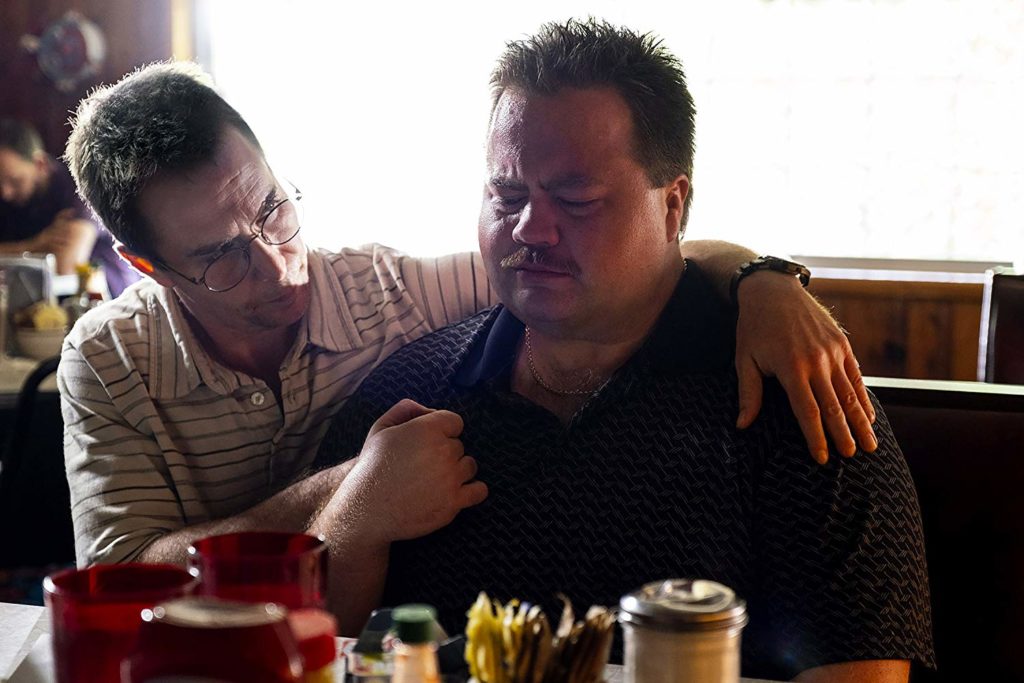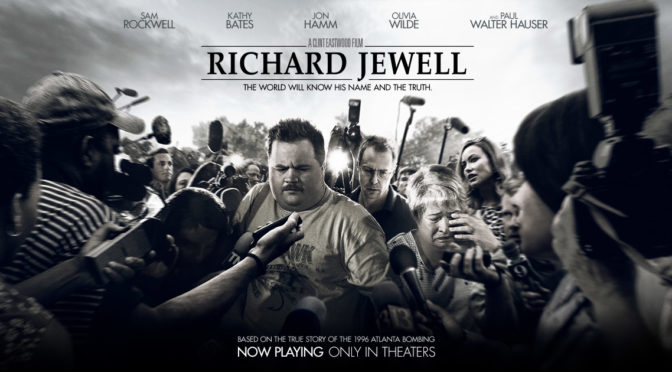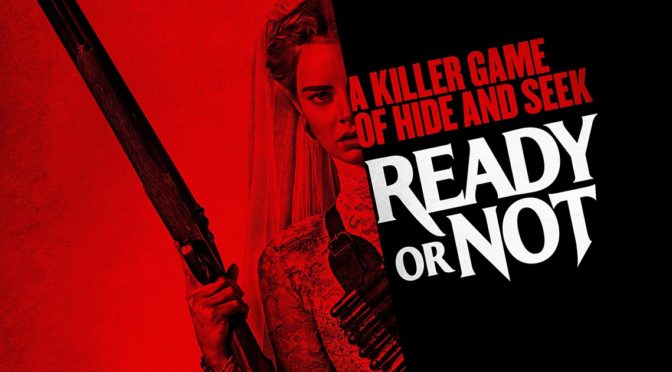In an age of pivotal news breaking every moment, the story of Richard Jewell may not be known to younger audiences, but it is one relevant to our modern times. Jewell (Paul Walter Hauser; I, Tonya) is a former police officer now working security at the 1996 Olympics in Atlanta. He asks the local police to call in an unidentified package when he spots a discarded backpack only to discover a live bomb in the bag. He works to evacuate people from the area before the bomb explodes, saving many lives, and is an immediate hero for his actions until public opinion starts to change. A local paper reports that he was being investigated as a suspect in the bombing, a routine part of the FBI’s process, and he soon becomes the media’s villain.
The film boasts a strong cast with Hauser up to the task of playing the maligned, but well-meaning lead. He shows Jewell’s naïve trust of authority and his true devotion to justice, but also how this can negatively impact others when he is too adherent to the letter of the law. Jewell is shown as a simple man whose main goal in life is to be one of the good guys which makes the sudden shift in public opinion all the more hurtful. By his side is Sam Rockwell (Three Billboards Outside Ebbing, Missouri) as his lawyer, who seems to have carved out a niche for himself playing these types of roles. Rockwell is straightforward and sharp, unafraid to tell Jewell what mistakes he is making or to tell off the authorities when needed.

The main antagonists become the media and law enforcement. Jon Hamm (Mad Men) plays the FBI agent that leaks Jewell’s name and becomes fixated on convicting him. He seems selfish and willfully oblivious as he ignores facts and relies on unproven hunches to continue the investigation. The brunt of the blame for Jewell’s ordeal is placed on Kathy Scruggs (Olivia Wilde; TRON: Legacy), the local reporter that first lists Jewell as a suspect. The real-life Scruggs has passed away so there is no way to know how realistic her portrayal is, but Wilde does her no favors. Scruggs is shown as a mean, slimy, immoral reporter that will sleep with people for info just so she can get a story with little regard for its consequences or veracity.
While the film is right to indict the press and police in Jewell’s living nightmare, the story plays this too safe. The legal battle that ensues as Jewell is brought in by the FBI and his trusting nature is taken advantage of to trick him into implicating himself is appropriately infuriating and Hauser and Rockwell are likable leads. The issue is that the film doesn’t attempt to grasp the full picture of what caused the situation. It never addresses the public’s role in feeding the media’s focus on Jewell over other possible suspects and the ease many felt with stereotyping Jewell based on his background. This is a noticeable but not debilitating omission that would have made for a much more complex, challenging film. As it stands, Richard Jewell is a safe, but effective drama about the damaging impact of a media frenzy.

3/5 stars.




